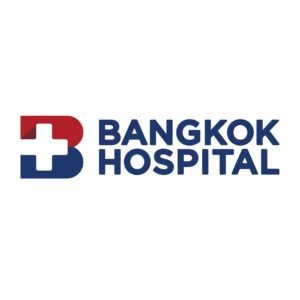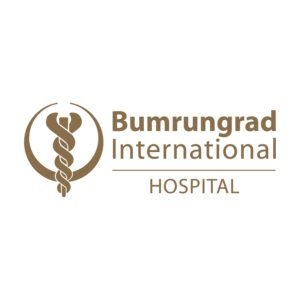Psychologist Bangkok
Choosing a Psychologist in Bangkok
Before choosing a psychologist in Bangkok, it is important to understand the role of psychologists within Thailand, as each professional brings a unique set of skills and expertise tailored to specific needs. The services they offer along with those provided by counsellors and psychiatrists, may differ from what you might expect in other countries, making it essential to understand how emotional and psychological support is structured locally.
By identifying the most appropriate type of professional, individuals can receive personalised support that addresses their specific concerns, whether it involves coping with emotional challenges, undergoing psychological assessments, or receiving medical treatment for more complex psychological conditions.
Free Initial Consultation
Before deciding whether you or your child would benefit most from seeing a psychologist, counsellor, or psychiatrist, we offer the following:
- Free 15-minute Zoom video consultation for individuals
- Free 30-minute Zoom video consultation for couples and families
This Free initial consultation will provide an opportunity to briefly discuss your situation, ask any initial questions, and agree on the most appropriate next steps based on your individual or family needs.
To arrange this, please contact us by phone or email or better yet, complete our client enquiry form. This helps us gather a little more background. Once submitted, we will email you a list of available times for your free initial consultation.
Psychological Services & Treatment in Bangkok
Psychologists in Bangkok typically work within either government or private hospitals licensed by the Thai Ministry of Public Health. These medical establishments provide a range of psychological and psychiatric services ensuring that individuals with mental health concerns receive comprehensive care.
Within these organisations multidisciplinary teams, including psychologists, psychiatrists, and other medical doctors collaborate to assess and address the most appropriate medical needs of patients.
Medication may be recommended as part of the treatment plan for certain psychological issues, In Thailand, psychiatrists may prescribe medication based on the individual’s diagnosis and symptom severity.
Although some therapy providers may advertise psychological services we always recommend that anyone seeking medical diagnosis, psychological testing and psychological treatment consult with a licensed psychiatrist.
Diagnosing psychological issues involves a thorough assessment process, which may include various tests and evaluations. Common psychological or behavioural concerns include such as Attention-Deficit/Hyperactivity Disorder (ADHD) and Autism Spectrum Disorder.
For conditions like bipolar disorder and schizophrenia, diagnosis typically involves a comprehensive evaluation conducted by a psychiatrist. This evaluation may include a detailed psychiatric history, clinical interviews, observation of symptoms, and, in some cases, neuroimaging or laboratory tests to rule out other medical conditions.


International hospitals such as Bangkok Hospital and Bumrungrad International Hospital offer such services in both Thai and English language.
Bumrungrad is only located in Bangkok whereas Bangkok hospital has over 30 associated hospitals within its hospital network providing services in multiple locations throughout Thailand
Bangkok Hospital offers comprehensive psychological and psychiatric services in both Thai and English through its Mental Health Rehabilitation and Recovery Center (BMRC) and Special Clinic (Psychiatry).
Bumrungrad International Hospital in Bangkok offers extensive psychological and psychiatric services through its Behavioral Health Center. The center provides multifaced care for a variety of mental health conditions.
Additional Support through Counselling & Therapy
While medication can be beneficial for managing symptoms, many medical professionals recommend counselling as an additional resource in addressing underlying issues and promoting mental well-being.
Through counselling, individuals can explore their thoughts, feelings, and behaviours, gain insight into their challenges, and develop coping strategies.
In Thailand, counselling approaches may vary, including cognitive-behavioural therapy (CBT), emotional focused therapy (EFT), psychodynamic therapy, interpersonal therapy, and mindfulness-based therapy. These approaches aim to help individuals and couples understand the root causes of their distress, challenge negative thought patterns, develop new coping skills, and enhance mental and emotional well being.
Counsellors Role: Training, Education & Experience
Counsellors in Thailand typically hold a master’s degree (2 – 3 years) in counselling, psychology or counselling psychology. Practical experience working with clients for counselling for masters degrees usually range between 200 and 300 hours of clinical practice in both individual and group counselling utilising a range of counselling techniques supervised by an appointed clinical supervisor.
Roles and Responsibilities:
- Provide individual counselling for adults, children, teens or couples or family therapy.
- Help clients process, cope, manage and resolve personal and emotional issues utilising therapeutic techniques like CBT, motivational interviewing, and solution-focused therapy.
- Counsellors do not diagnose severe mental illnesses or prescribe medication but may refer clients to psychiatrists or psychologists if more intensive treatment is needed.
Experience and Specialist Knowledge
One of the main reasons people seek help from a counsellor, therapist, or psychologist in Bangkok is the benefit of their professional experience. While each practitioner may have a broad background across various issues, it is essential to find someone with specific expertise in addressing the particular challenges you are facing
Counselling Thailand is a well respected private practice providing counselling and therapy services both within Thailand and internationally.
Since launching in 2018 our experienced bilingual counselling team has grown not just in numbers but in experience, expertise and multilingualism. We are delighted to offer counselling and therapy services in several languages including English, Thai, Mandarin, Indonesian, Vietnamese and Korean.
The most common issues we work with are
Stress, Anxiety & Depression
Marriage counselling, Couples Therapy & Relationship problems, LGBTQ+
Cross-Cultural and Thai / Western Relationships
Trauma, PTSD, CPTSD, ACE (Adverse Childhood Experiences)
Child & Teen Problems and Parental support
Compulsive behaviours: OCD, Gambling, Gaming, Phone / Social Media
Eating Disorders
Please note: This is not a comprehensive list so if you are seeking help for something that is not mentioned here please mention this when completing our online enquiry form so we can allocate the therapist with the knowledge and experience best suited to your individual needs.
Counselling Approaches / Therapy Modalities
At Counselling Thailand our experienced counselling team offer a range of different therapies and approaches for both individual and couples therapy.
Cognitive Behavioural Therapy (CBT): CBT Therapy focuses on identifying and changing negative thoughts and behaviours. It emphasises the connection between thoughts, emotions, and behaviors, helping individuals develop healthier coping strategies.
Dialectical Behaviour Therapy (DBT – Mindfulness): DBT Therapy combines cognitive-behavioral techniques with mindfulness. Initially for borderline personality disorder, it’s effective for various conditions, emphasizing acceptance, change, emotional regulation, improved relationships, and mindfulness skills.
Satir Therapy: Satir Therapy is a humanistic approach which helps improve self-esteem and communication within relationships. It emphasizes congruence, self-awareness, and authentic emotional expression, uncovering family dynamics to promote growth and change.
Gestalt Therapy: Gestalt Therapy emphasises present moment experience and self-awareness through exploring thoughts, feelings, and behaviours. It focuses on integrating fragmented aspects of the self, promoting personal responsibility and self-acceptance.
Emotionally Focused Therapy (EFT): EFT, primarily for couples, helps transform negative interaction patterns, fostering emotional bonding and secure attachment. It focuses on emotions, communication, and building empathy within relationships.
Acceptance and Commitment Therapy (ACT): ACT Therapy combines mindfulness with exploring personal values, encouraging acceptance and commitment to actions aligned with values despite difficult thoughts and emotions. It promotes mental & emotional flexibility and meaningful living.
Person-Centered Therapy: This therapy emphasises the therapeutic relationship and individual growth potential, focusing on empathy, unconditional positive regard, and congruence. The therapist provides a supportive environment for self-exploration and growth.
Exposure and Response Prevention (ERP): ERP, a specialized CBT form for anxiety disorders like OCD, involves gradually exposing individuals to feared situations while preventing anxiety-driven responses, reducing anxiety over time.
Rational Emotive Behaviour Therapy (REBT): REBT focuses on identifying and challenging irrational beliefs to promote healthier thoughts and emotions. It helps develop rational thinking, change self-defeating behaviors, and build emotional well-being.
Psychodynamic: Psychodynamic Therapy explores unconscious processes and unresolved conflicts contributing to psychological issues. It focuses on the client-therapist relationship and interpretation of underlying meanings for insight and growth.
Humanistic Therapy: Humanistic Therapy emphasises personal growth, self-actualization, and individual potential, focusing on empathy, genuineness, and unconditional positive regard to help individuals explore their feelings, values, and aspirations.
Motivational Interviewing: This client-centered approach explores and resolves ambivalence about change, strengthening motivation by eliciting and reinforcing intrinsic values, goals, and reasons for change.
Exposure Therapy: Used for anxiety disorders like phobias and PTSD, exposure therapy involves gradually exposing individuals to feared situations or stimuli in a controlled manner, helping manage anxiety response and reduce avoidance behaviours.
Please note that these summaries provide only a brief overview of each modality. Each counselling modality encompasses more extensive theories, techniques, and applications that require in-depth study and training to practice effectively.
More information can be found by visiting our Bangkok Counselling & Therapy Providers page.
Selecting the Appropriate Counselling or Psychological Services
At Counselling Thailand, we understand the importance of finding the most appropriate professional for addressing your concerns and needs. That’s why we offer a free initial 15 minute consultation for individuals and 30 minutes for couples and families.
The next step for anyone seeking help is to complete our online client enquiry form. This will give a little extra information to help us either select whom we believe the most suitable therapist from within our team or make suggestions for other professional services that may be more suitable.
Assuming we believe that the services we offer are suitable we will email you a list of available appointment times for the free initial consultation call.
During this consultation, we will discuss your specific situation and determine whether our approach aligns with your needs. We will also answer any questions you may have. If you decide to proceed with counselling, we can then schedule the first full session(s) at a mutually convenient time.
If you have any questions before booking the free initial call you can either visit our Frequently Asked Questions Page, or mention these whilst completing the online enquiry form.





